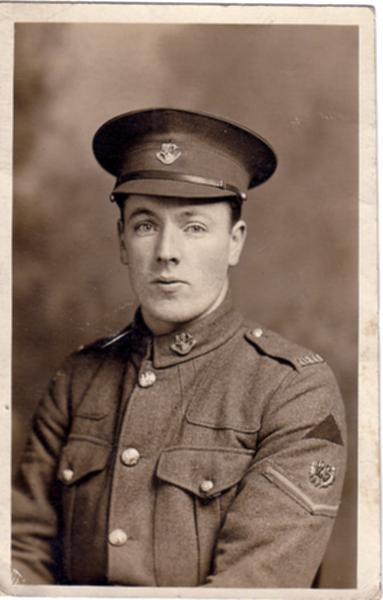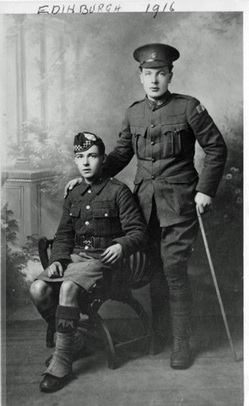Today is Canada Day.
In Newfoundland, July 1st is also Beaumont Hamel Day. So, in addition to waving the Maple Leaf and popping off fireworks, we also remember a battle that shaped our identity as a people.

On July 1st, 1916, the First Regiment of the Newfoundland Regiment took part in the opening attacks of the Battle of the Somme. At 8:45 am, 801 officers and men went over the top. Within thirty minutes, the regiment was all but wiped out. Only 68 responded to roll call. The rest were killed, wounded or reported missing.
My grandfather, Lance-corporal James Ryan, took part in this attack and was one of the 68 to respond to roll call. He kept a diary of his experiences and I think the best way to recall the battle is in his own words:
South African, Australian and Imperial gunners stripped to the waist, poured tons and tons of metal into the enemy’s defenses for sixty minutes, giving the whole countryside the appearance of a boiling cauldron. Shortly before nine the great mine went up with terrific force, sending a village and many yards of German trench skywards. Then over went the front lines and we waited anxiously for news of their success. Many machine guns were firing but little did we know they were German.
An officer came rushing over the top of our trench, his face and hands bled badly and his clothes were covered with mud. “The line is gone, boys,” he said, “the brigade is wiped out.”
“Good God!” our officer exclaimed, “and we are to attack in two minutes.”

I am not sure that the Colonel knew, but the orders were not changed. A bugler on our left jumped up and blew the “advance” and we scramble out of the trench to try our luck. The machine guns were taking it easy for a bit, but when two thousand heads sprang over the ridge they were at it again with renewed vigor. Each gunner picked his section and in a few minutes the First Regiment from Terra Nova lay dead and dying in No-man’s-land.
Our own wire was not sufficiently cut and we were at a loss to find a gap to get through. The wire cutters of our section desperately strived to break away, but the “typewriters” were too quick. French was hit clean through the head and lay over on the wire; Sergt. Jack Robinson was knocked senseless and to all appearances dead.
One by one the boys were killed or wounded, and then the rear sections came piling in, just in time to receive a great shell that burst in the centre of the bunch. A few of the chaps were blown into little piece, others were badly wounded, but the strong force of concussion altered my mental faculty for the remainder of that day. I crawled into the front line but Fritz had changed this into a furnace. Great high explosives and shrapnels tore up the traverses; sand bags were blown up and the shelters beaten down. Dead men were lying everywhere, looking ghastly and gruesome. How I got away from it all I don’t know; I am sure it was not common sense or presence of mind that saved me; I just fooled out of it somehow.

My grandfather was #38 of the First Five Hundred and was underage when he enlisted. He fought and was wounded in Gallipoli in November, 1915 and sent to England to recuperate.
He was reassigned to his unit in March, 1916 and participated in the Somme and Ypres where he was wounded a second time in November, 1916. He returned to England and was discharged due to his wounds in July, 1917.
His diary was published in the Colonial Commerce Magazine in 1917/1918.
He passed away in 1982.
Well said, Lesleyanne. Such a conflict of emotion for Newfoundlanders on this day each year. Thank-you for posting your grandfather’s account. That couldn’t have been easy for you.
I’m just happy to have this blog now so that I can give his words a wider audience so that some can remember and others educated.
(One note of interest. Everything I’m reading recently has the number that responded to roll call as 68. My memory is that my grandfather always said it was 69. Also, Wiki says 780 went over the top while my memory always remembered 801. Something to check out, I think.)